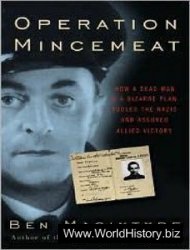Ca. 1265 Dante born in May or June in Florence to Alighiero and Bella.
1274 Dante sees Beatrice for the first time. (According to The New
Life, he falls in love with her the moment they meet.)
1275-1282 Dante studies at the convents of Santa Croce and Santa Maria Novella.
1283 Dante’s father dies.
Dante marries Gemma Donati (with whom he will have four children: Jacopo, Pietro, Giovanni, and Antonia).
Writes his first sonnets.
1285 Dante becomes a soldier and takes part in the battle of the Sie
Nese against the Aretines at Poggio Santa Cecilia.
1288 Dante writes the ballad “Ladies who have intelligence of love” and the two sonnets “Love is one with the gentle heart” and “My lady bears love in her eyes.”
1289 Dante takes part in the battle of Campaldino. (He recalls this battle in The Purgatorio.)
1290 Beatrice dies.
1292 Dante writes La Vita Nuova (The New Life).
1294 Dante meets Charles Martel of Anjou king of Hungary and heir to the kingdom of Naples and the county of Provence, and establishes a friendship with him. (Dante recounts their meeting in The Paradiso.)
1295 Dante enrolls in the Guild of Physicians and Apothecaries and enters Florentine political life.
Elected to the council of the Heads of the Arts in order to cooperate with the Captain of the People in the selection of new priors.
1296
1300
Dante takes part in the Council of the Hundred.
Pope Boniface VIII proclaims the Jubilee Year.
Dante named a prior, one of the six highest magistrates in Florence.
1301
(Eastertime) Fictional date of the journey of The Divine Comedy. Dante takes the floor in the Council of the Hundred to oppose helping Boniface VIII fight the Santafiora of Maremma.
Sent to Rome as an ambassador to Boniface VIII to convince him to recall Charles de Valois, whom the Pope has sent to Florence as a mediator.
The Black Guelph Corso Donati reenters Florence and wreaks vengeance on the Whites while Dante detained in Rome by Pope Boniface VIII.
1302 Dante accused of treachery and receives a fine and banishment
For two years with permanent exclusion from public office.
1302 After failure to appear in court (due to the Pope’s detaining him in Rome), Dante condemned to death in absentia.
1303 Pope Boniface VIII dies.
1304 Dante writes De vulgari eloquentia (On the Eloquence of the Vernacular). During this same period, writes H Convivio (The Banquet).
1306 Dante moves to Lunigiana and appointed procurator to the
Marquesses Malaspina.
1308 Dante begins writing La Divina Commedia (The Divine Comedy).
1309 Dante writes De Monarchia (On Monarchy).
1310 At the news of the arrival in Italy of Henry VII of Luxembourg, Dante goes to meet his fellow exiles at Forli.
With other exiles, goes to Asti to pay homage to Henry VII.
1311 Emperor Henry VII crowned King of Italy in Milan.
Dante writes a letter to Henry VII inviting him to come to Tuscany and restore peace to Florence.
1312 Dante joins Henry VII in Pisa.
Henry VII camps under the walls of Florence.
1313 Henry VII moves from Pisa toward the Kingdom of Naples. He dies of fever during the journey.
1314 Dante guest of Cangrande della Scala in Verona.
The Inferno, the first part of The Divine Comedy, published.
1315 Dante leaves Verona for Lucca.
Renewed Florentine sentence against Dante extends to family. Dante moves to Verona as guest of Cangrande della Scala. Works on The Purgatorio and The Paradiso and writes the Questio de aqua et terra (Question Concerning Water and Earth). 1316-1319 Dante travels between Verona, the Marca Trevigiana, Romagna, and Tuscany.
1319 Dante moves to Ravenna, where he is the guest of Guido No-
Vello da Polenta, lord of that city.
1321 Dante completes The Divine Comedy.
Is ambassador to Venice. On a mission for Guido Novello, stricken with fever and returns to Ravenna. Dies on September 13.
Guido buries Dante in the Church of Saint Francis, with full honors.
This page intentionally left blank

Effigy of Eleanor of Aquitaine, Fontevrault Abbey, France. Eleanor died in 1204. (Erich Lessing/Art Resource, NY)




 World History
World History









